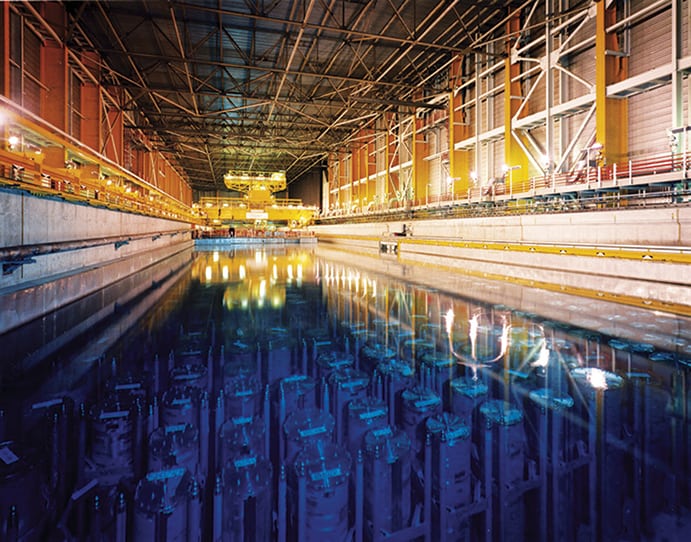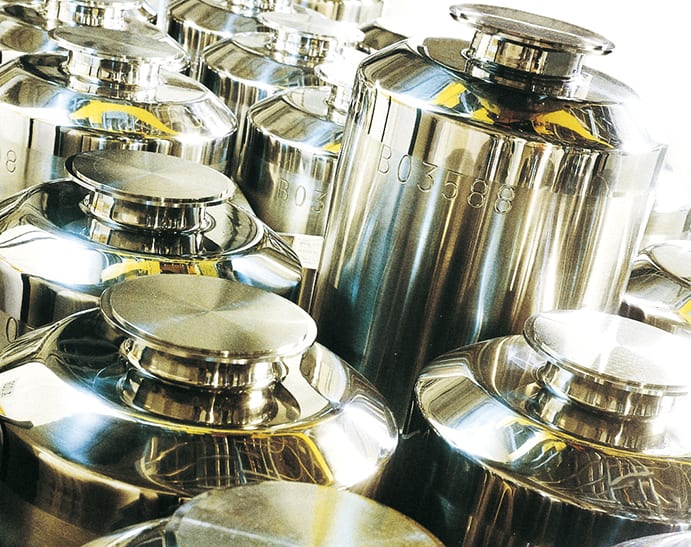The UK faces major challenges in dealing with nuclear waste, which means an abundance of opportunity in the industry
Last month, a £6.1bn deal to clean up the UK’s redundant fleet of Magnox nuclear reactors was pulled after the government mishandled how the work was awarded. Dr Paul Dorfman, University College London’s nuclear power expert, believed it was “inevitable” the deal would fail. He claimed the challenges of decommissioning nuclear plant and dealing with their waste have long been underestimated.
This has proven to be an expensive mistake. Taxpayers must now pay almost £100m in compensation to companies who bid for Magnox work in the UK but failed to get it. The main problem, according to Dr Dorfman, is nuclear power plants were built in a rush in the 1950s with little thought given to how they might be decommissioned. Each Magnox reactor is unique so taking each one apart has its own very specific challenges.

Dealing with these challenges requires a range of engineering and project management skills, many of which are transferable from other industries. Opportunities for engineers in the sectors are many and varied, and most recruiters have their own training schemes to develop the next generation of talent. With the government waking up to the scale of the problem, there has never been a better time for engineers to embark on careers in nuclear waste management and decommissioning.
Graduate schemes are one route into the industry. “The Office for Nuclear Regulation [ONR] is sponsoring me through a graduate scheme called nucleargraduates,” said Samuel Harvy, a nuclear graduate with ONR. “This scheme will give me a great depth of experience of the nuclear industry by providing the opportunity to complete three secondments at different organisations over a period of two years. Alongside these secondments, there are numerous training and development opportunities, including training zones, professional courses and STEM engagement.”
Graduate schemes can help provide an overview of the industry. But there are also other routes, including short courses. Birmingham University currently offers a Nuclear Decommission and Waste Management MSc/PG Diploma. This can be gained through one-year full-time study, or a two-year part-time course.
Slated for decommissioning
Given the rapid nature in which its nuclear power plants were built, the UK has a varied portfolio of facilities to decommission. The ONR currently oversees the licensing of 17 nuclear sites that are slated for decommissioning and clean-up. These include Bradwell, Berkeley, Dungeness A, Trawsfynydd, Hunterston A, Hinkley Point A, Oldbury, Chapelcross and Sizewell A. But by far the most complex is Sellafield perched on the Cumbrian coast.
Currently, Sellafield has one of the large stockpiles of untreated waste in the UK, including 140 tonnes of civil plutonium. That’s more than 14,000 times the amount needed to make a nuclear weapon. Material at Sellafield is expected to remain radioactive for 100,000 years. In 2002 work began to make the site safe. This involved engineers using an automated dismantling machine alongside a remote-controlled manipulator arm and crane to take the site apart.
Engineers must now manage what is left from early nuclear research at the site. There are no blueprints making it even tougher for those involved. But from this challenge, UK engineers have become world leaders in decommissioning, developing skills that they can export throughout the world.
In Cumbria, Sellafield is one of the region’s main recruiters, with more than 500 engineering apprentices currently on its books along with hundreds of graduates and more than 10,000 employees in total. New recruits have a diverse range of skills, ranging from project management to chemical engineering and robotics.

Beccy Pleasant, head of skills and talent for the NDA, said: “The first issue is that we’ve got an ageing workforce. People have been in the industry a while and those people are starting to think about retirement now, so we need to replace those skills.
“The other issue we’ve got is that STEM subjects, more recently, haven’t been very popular with school students so we haven’t got the same pipeline pumped full of people with the basic-level science, technology, engineering and maths skills to be the future workforce.”
Keiran Doyle, a nuclear worker apprentice at Sellafield, said the reason he chose an apprenticeship was because he wanted transferable life skills and to earn while he learned. “My role is to make sure all equipment and materials are prepped and ready to allow the plant to run smoothly,” he said.
“Some of the activities I am involved in include bringing the waste containers over onto plant, introducing them into the cell, making sure that the glass and sugar are ready… I would definitely encourage people to pursue a career in engineering. There are a wide number of routes to take so whatever you are into there will be a role that fits.”
Complex challenges
In January, it was announced that funding of £3m will be offered by the UK Nuclear Decommissioning Authority (NDA) and Innovate UK to develop and demonstrate technologies that could help resolve some of the complex challenges associated with dismantling facilities at the Sellafield site. The Integrated Innovation for Nuclear Decommissioning competition will focus on robots and remotely operated equipment.
Two of Sellafield’s major facilities for reprocessing used nuclear fuel are set to close by 2020, when the site will move to full-scale decommissioning and waste management. Technical innovation manager Chris Hope, who is on secondment to the NDA’s Technology Team from Sellafield, said: “The Thorp and Magnox reprocessing facilities are unique, contain hazardous environments and we know they will present major decommissioning challenges in the years ahead so we are aiming to encourage early solutions.”
It’s not just Sellafield where there are plenty of opportunities. The British nuclear decommissioning industry is currently worth more than £1.7bn of business per year for UK companies, with around 21 per cent spent with small and medium enterprises (SMEs). And many of the skills can also be transferred abroad. So far, nuclear power stations have been built in 31 countries, but only six have either started building or completed construction of geological disposal facilities.
Regardless of the future of nuclear power, the need to manage radioactive waste will continue for many decades. Getting the skills to deal with it now could provide an innovative, rewarding and exciting career for engineers able to deal with the challenge.




Collaboration to address viable solutions for VAWG database
<blockquote>address the lack of standardisation, coordination, and collaboration of gender disaggregated data intelligence across various regions,...